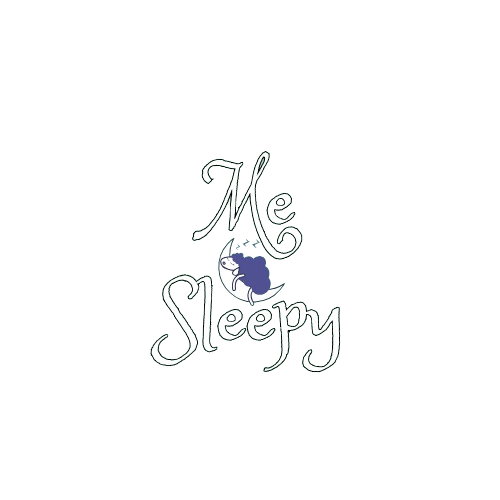Prevalence of Snooze Alarm Use in Insomnia Management
Study Findings on Snooze Alarm Usage Among Individuals with Insomnia
The use of snooze alarms is a widespread practice, even though it is not recommended by sleep experts. A study led by researchers at Mass General Brigham has shed light on this phenomenon, revealing that more than 50% of sleep sessions logged ended with a snooze alarm. The study, which analyzed data from the Sleep Cycle app, involved over 21,000 participants worldwide. It found that the snooze button was pressed in approximately 56% of the 3 million nights studied. Notably, around 45% of participants hit the snooze button on more than 80% of mornings, with heavy users averaging 20 minutes of snooze time each day. These findings, published in *Scientific Reports*, highlight the prevalence of snooze alarm usage among individuals, including those with insomnia.
Global Statistics on Snooze Alarm Usage from the Sleep Cycle App
The Sleep Cycle app provided a global perspective on snooze alarm usage, revealing interesting patterns across different regions. The study found that reliance on the snooze button varied by day of the week, with higher usage during the workweek (Monday through Friday) and lower utilization on weekends. Additionally, the study noted that snooze alarm usage was lower among individuals sleeping five or fewer hours, possibly due to occupational responsibilities that necessitate waking up promptly. Heavy snooze alarm users, who relied on the snooze function on more than 80% of mornings, exhibited more erratic sleep schedules compared to other users. Geographically, the highest snooze button usage was observed in the U.S., Sweden, and Germany, while Japan and Australia reported the lowest reliance on snooze alarms.
Impact of Snooze Alarms on Sleep Quality and Insomnia
Disruption of Critical Sleep Stages by Snooze Alarms
Snooze alarms can significantly disrupt critical sleep stages, particularly in the hours just before waking. According to Dr. Rebecca Robbins from the Division of Sleep and Circadian Disorders Medicine at Brigham and Women’s Hospital, the snooze alarm interrupts some of the most important stages of sleep, such as rapid eye movement (REM) sleep. This disruption can prevent individuals from experiencing the restorative benefits of REM sleep, which is crucial for cognitive function and emotional regulation. Instead of achieving deeper sleep, snooze alarms often result in lighter sleep stages, which may not provide the same restorative benefits.
Effects of Snooze Alarms on Rapid Eye Movement Sleep and Insomnia
The impact of snooze alarms on REM sleep is particularly concerning for individuals with insomnia. REM sleep is essential for memory consolidation and emotional processing, and its disruption can exacerbate insomnia symptoms. By interrupting REM sleep, snooze alarms may contribute to the persistence of insomnia, making it more challenging for individuals to achieve restful and restorative sleep. Dr. Robbins emphasizes that the best approach for optimizing sleep quality and next-day performance is to set an alarm for the latest possible time and commit to getting out of bed when the first alarm goes off. This strategy minimizes the disruption of critical sleep stages and supports healthier sleep patterns.
Patterns of Snooze Alarm Usage and Insomnia
Variations in Snooze Alarm Reliance During the Workweek Versus Weekends
The reliance on snooze alarms shows distinct patterns depending on the day of the week. During the workweek, from Monday to Friday, individuals are more likely to hit the snooze button. This increased usage could be attributed to the structured nature of workdays, where people often feel the pressure to wake up early despite not getting enough rest. On weekends, however, the usage of snooze alarms tends to decrease. This reduction might be due to the flexibility in wake-up times, allowing individuals to sleep in and avoid the need for a snooze alarm altogether. These patterns suggest that the demands of a typical workweek significantly influence snooze alarm habits.
Correlation Between Snooze Alarm Usage and Erratic Sleep Schedules in Insomnia Sufferers
For individuals suffering from insomnia, the use of snooze alarms can be particularly problematic. Heavy snooze alarm users often exhibit more erratic sleep schedules, which can exacerbate insomnia symptoms. The inconsistency in wake-up times and the fragmented sleep caused by repeated snoozing can lead to a disrupted circadian rhythm. This disruption makes it harder for insomnia sufferers to establish a regular sleep pattern, further complicating their ability to achieve restorative sleep. Understanding this correlation is crucial for developing better sleep hygiene practices and managing insomnia more effectively. For more insights on managing insomnia, check out our Insomnia Blog.
Geographic Differences in Snooze Alarm Habits and Insomnia
High Snooze Button Usage in the U.S., Sweden, and Germany
Geographic location plays a role in snooze alarm habits, with notable differences observed across various countries. The U.S., Sweden, and Germany report some of the highest snooze button usage. Cultural factors, work schedules, and lifestyle choices in these countries may contribute to this trend. The high reliance on snooze alarms in these regions suggests a potential link between societal norms and sleep behaviors. It also raises questions about the impact of these habits on overall sleep quality and the prevalence of insomnia.
Lower Snooze Alarm Reliance in Japan and Australia Among Those with Insomnia
In contrast, Japan and Australia exhibit lower snooze alarm reliance, even among individuals with insomnia. This difference could be attributed to cultural attitudes towards sleep and waking practices. In Japan, for instance, there is a strong emphasis on punctuality and discipline, which might discourage the use of snooze alarms. Similarly, Australia’s more relaxed lifestyle and emphasis on work-life balance could contribute to less reliance on snoozing. These geographic differences highlight the importance of considering cultural context when addressing sleep issues and developing strategies for insomnia management. For those looking to improve their sleep quality, exploring our Sleep Sound Playlists might be a helpful addition to their routine.
Sources:https://www.sciencedaily.com/releases/2025/05/250519131537.htm



